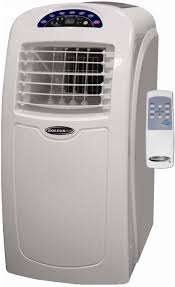AC Know-How for Central and Window Units
Posted by AC World on February 26th, 2015

Nothing can replace the voice of an expert—whether an art authority or political insider. Or a tradesperson, like Richard Trethewey, who has built a reputation as one of the nation’s foremost authorities on air conditioning issues.
For street cred, look no further than the many years that Trethewey has been associated with the PBS program This Old House, which over its long history has covered just about every kind of air conditioning and heating challenge a homeowner could encounter. Here are some of Trethewey’s nuggets of wisdom concerning central and window AC units, as compiled by This Old Housemagazine:
Dirty filters are the scourge of every AC unit, advises Trethewey. So, it pays to learn how to rotate out the old and install the new. The higher the filter’s MERV (Minimum Efficiency Reporting Value), the better filtration it will provide.
Keep an eye on any leaks that detract from your system operating at peak efficiency. You can locate leaks by using the “smoke trick,” which involves holding a stick of incense next to a window unit (or near duct connections for central AC) and seeing if the smoke blows around. If it does, there are leaks.
Ducts in crawl spaces or attics aren’t magically impervious to the effects of ambient air in those spaces. Wrap ducts to keep the air within them cool.
Keep the areas around your outside compressor/condenser clear—by at least 24 inches. Says Trethewey, "Install condensers or window units on the north or east side of your house, or build a screen to shield them from the sun. Putting them in direct sunlight reduces their efficiency by as much as 10 percent."
Make sure that you get regular inspections of your system so that critical components can be replaced or serviced before they get to the point of failing – a situation that can often make any repair system that much more expensive. Fan belts need inspecting, motors require lubricating and refrigerants, pressures and operating temperatures could all benefit from regular monitoring.
More questions about basic AC Know-How? Contact an AC World specialist today!
 Loading... Please wait...
Loading... Please wait...


